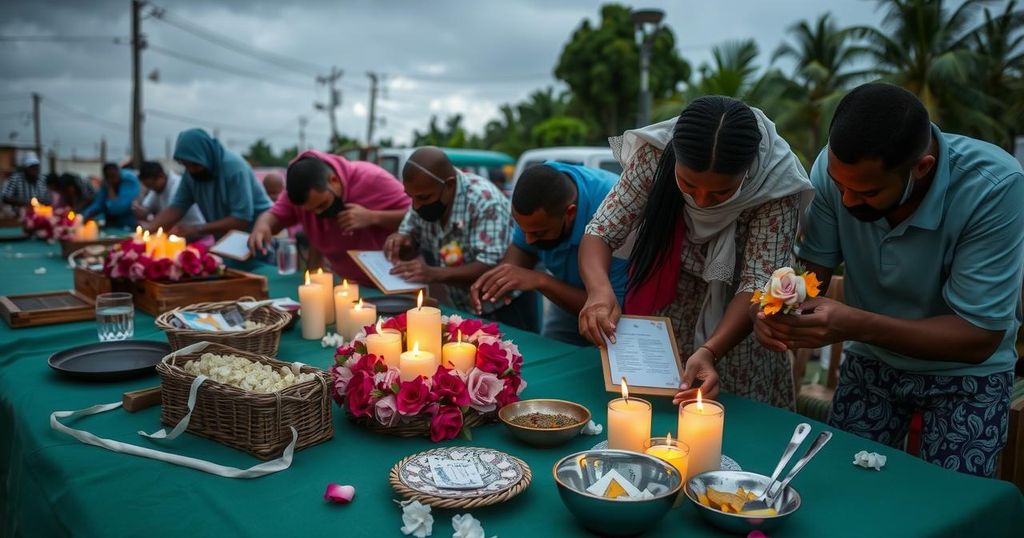Comoros Observes National Mourning Following Cyclone Chido’s Devastation in Mayotte
Comoros declared a week of national mourning after Cyclone Chido devastated Mayotte, with fears of several hundred fatalities. The cyclone, classified as a category four storm, caused extensive damage to infrastructure and left many homeless in shantytowns. Rescue and humanitarian efforts are urgently needed as conditions worsen, particularly for vulnerable populations.
On Monday, Comoros declared a week of national mourning following the devastation wrought by Cyclone Chido on the neighboring island of Mayotte, which has been hit particularly hard. Authorities there fear that the death toll may reach several hundred, especially in impoverished shantytowns that are home to many Comorans. President Azali Assoumani announced that the mourning period will last until Sunday, highlighting the significant human and infrastructural loss incurred in both territories.
Cyclone Chido, classified as a category four storm, unleashed winds exceeding 220 kilometers per hour on Saturday, making it the most severe cyclone to strike Mayotte in nearly a century. The island is located just 70 kilometers from Comoros and is home to a large population of Comoran immigrants, many of whom live in makeshift housing. Unofficial estimates suggest that between 100,000 and 200,000 people reside on Mayotte due to irregular immigration.
The destruction caused by Cyclone Chido has left vast areas of Mayotte in ruins, with reports indicating that all shantytowns have been flattened. This has raised grave concerns regarding the number of casualties, with estimates suggesting the death toll could be in the thousands. French authorities dispatched military personnel, ships, and aircraft to facilitate rescue operations, while efforts were underway to clear fallen trees and restore access to those affected.
Infrastructure has suffered extensive damage, leading to widespread outages of electricity and communication. A shortage of drinking water is increasing as humanitarian needs escalate. “There is no water, no electricity. Hunger is starting to rise. It is urgent that aid arrives, especially when you see children, babies, to whom we have nothing concrete to offer,” stated Mayotte Senator Salama Ramia. Meanwhile, the main hospital has also incurred severe damages, exacerbating the humanitarian crisis.
Due to the cyclone’s extensive destruction and the challenges in tracking undocumented migrants, the full extent of the toll may never be accurately recorded. The situation remains dire, necessitating urgent and effective international assistance to alleviate the suffering of the affected populations.
The Comoros archipelago, situated between Madagascar and the African mainland, includes the island of Mayotte, which has chosen to remain a French territory despite the Comoros’ independence in the 1970s. This geopolitical relationship has led to high volumes of migration from Comoros to Mayotte, where migrants often live in challenging conditions. Cyclone Chido’s arrival marked an unprecedented climatic disaster for the region, affecting the most vulnerable populations living in makeshift accommodations and highlighting the complexities of disaster response in areas with significant undocumented immigrants.
In conclusion, the week of national mourning declared by Comoros in response to the devastation caused by Cyclone Chido underscores the profound loss experienced by the affected populations, particularly in Mayotte. The humanitarian crisis continues to unfold, and the urgent need for effective relief efforts is paramount to address the significant challenges facing the survivors. International aid and support play a crucial role in ensuring that the basic needs of the affected populations are met and that adequate resources are provided to rebuild their lives.
Original Source: www.arabnews.com




Post Comment